It is an overwhelming time when you realize you or your loved one needs specialized care due to chemical dependency. There is so much information to research and digest, we hope the following helps you in your journey from hereon.
Talking to a licensed professional is always the best way to determine if you have an addiction. However, the following are some signs that it may be time to seek treatment:
- Inability to keep up with daily work, school, and other responsibilities due to substance use
- Diminished interest in activities that used to be enjoyed
- Extensive time and resources spent seeking the substance
- Relationship damage due to substance use
- Inability to stop using the substance even in light of negative consequences
- Strong cravings for the substance
- Withdrawal symptoms that occur if substance use is stopped
A structured treatment program geared to help women struggling with addiction to work towards a healthy, happy, sober lifestyle. At Twin Branch, a truly individualized treatment plan is created with goals for addiction management and life readiness.
Once admitted, you are encouraged to begin participating in individual and group therapies. Each woman is involved with creating her individual treatment plan which has tailored goals. Our women’s specific curriculum is a focus for 35 hours of each week and teaches techniques and tools to manage addiction. Intermingled with our program are opportunities for exercise, nutrition, life skills and general wellness. Upon discharge, a continuing care plan is implemented.
At Twin Branch, our residential treatment program is designed to address root cause, trauma, negative thinking patters and more. The average length of our Program is 56 days and in some cases up to 90 days. Case management and proper continuing care are crucial for either length of stay. The National Institute on Drug Addiction (NIDA) states that individuals progress through drug addiction treatment at various rates, so there is no predetermined length of treatment. However, research has shown unequivocally that good outcomes are contingent on adequate treatment length. Generally, for residential or outpatient treatment, participation for less than 90 days is of limited effectiveness, and treatment lasting significantly longer is recommended for maintaining positive outcomes. Good outcomes are contingent on adequate treatment length. Treatment dropout is one of the major problems encountered by treatment programs; therefore, motivational techniques that can keep patients engaged will also improve outcomes.
The fear of financial challenges should never be a barrier to proper treatment. The admissions professionals at Twin Branch are specialists in helping people find manageable ways to obtain care. They are familiar with the different options that can help people afford appropriate treatment. Continued substance abuse can become a greater financial issue than treatment and there are ways to get treatment even on a limited income.
Curriculum that is tailored to the physical, emotional, social and psychological needs of women. (Click here for Why Women Only)
Our unique Branches of Recovery system was developed by our founders to ensure proper progression through treatment, considering factors of client safety, client empowerment and continuity of care.
At Twin Branch, MAT refers to the use of Suboxone and Vivitrol to block the effects of heroin, other opiates and controlled substances. While we believe there are women who may need the intervention of MAT, we also believe long term use should be avoided. Putting into practice the tools learned for sustained recovery should include reasonable considerations of chemical independence in the future. We can help with this too.
According to the NIDA, research has shown that long-term drug abuse results in changes in the brain that persist long after a person stops using drugs/alcohol. These drug-induced changes in brain function can have many behavioral consequences, including an inability to exert control over the impulse to use drugs/alcohol despite adverse consequences—the defining characteristic of addiction. Research also indicates that active participation in residential treatment is an essential component for good outcomes and can benefit even the most severely addicted individuals.
According to the NIDA, yes! People who abuse prescription drugs, meaning, taking them in a manner or a dose other than prescribed, or taking medications prescribed for another person, risk addiction and other serious health consequences.
A branch of psychotherapy that works with families to nurture change and development. Support and forgiveness, from the people that have been hurt by addiction, is a crucial part of successful treatment. At Twin Branch, we offer a healing opportunity for family members as they address unresolved negative feelings and work toward true forgiveness. As part of our curriculum, we arrange teleconferences with family members, the client and her counselor.
According to the NIDA, yes! Exercise is increasingly becoming a component of many treatment programs and has proven effective, when combined with cognitive-behavioral therapy.
Reward system for showing acknowledgment, compassion, acts of kindness, self-awareness, partnering or sharing to assist another client, leadership, etc.
IOPs offer a highly structured approach to treatment, including regular therapy sessions and other support services. Participants attend treatment sessions at a designated facility but return home or to a sober living environment each day, allowing them to maintain their daily responsibilities.

